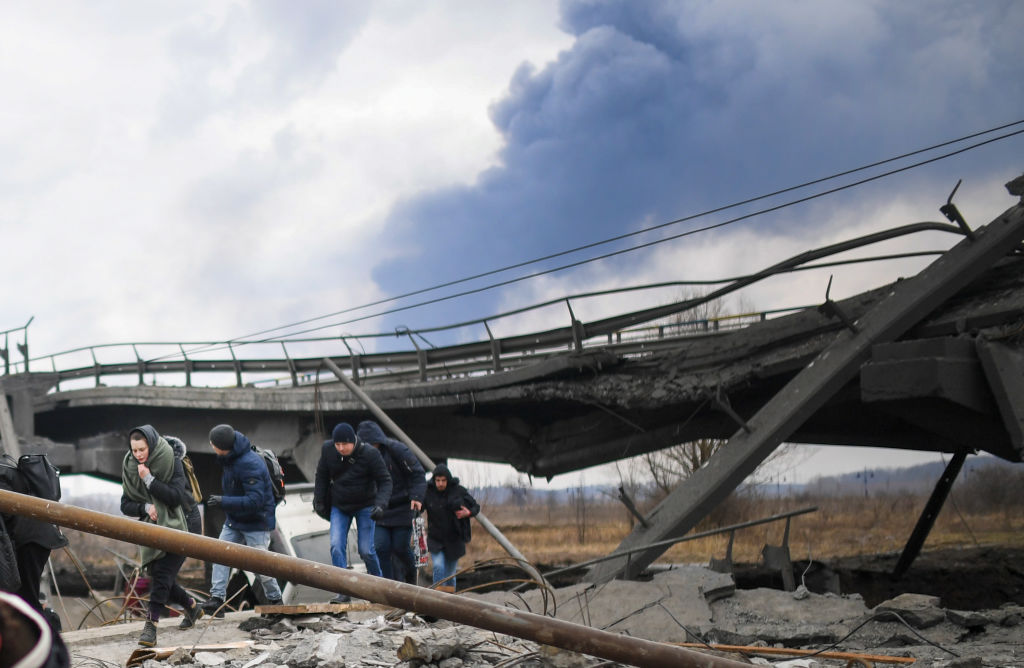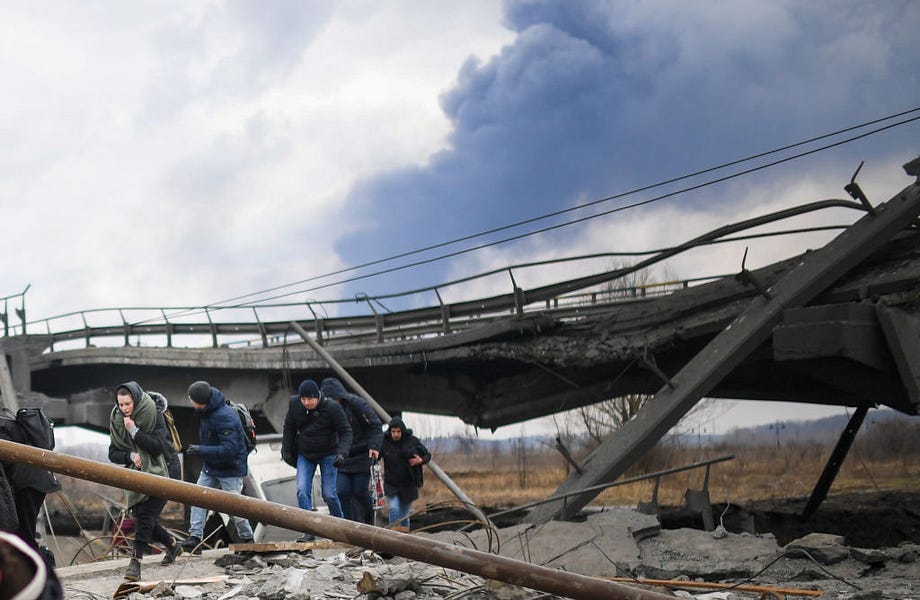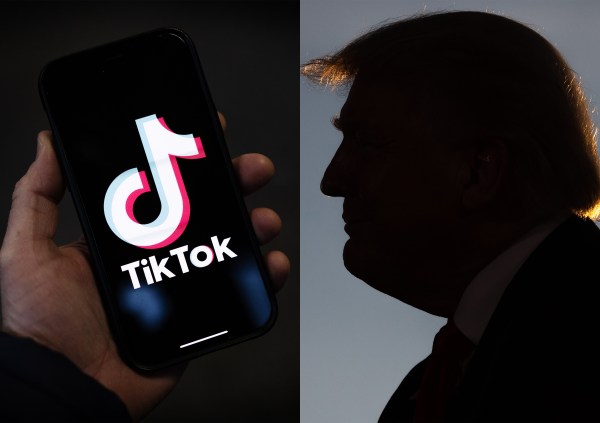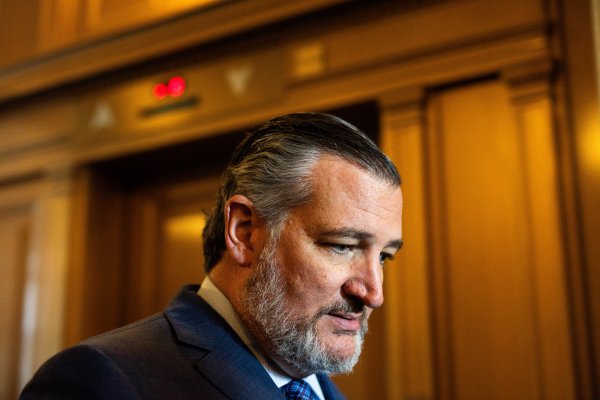Happy Monday! Looking for a creative way to help Ukrainians? Thousands of people have begun booking Airbnb rentals in the country as a secure way to transfer some money to those who need it.
Quick Hits: Today’s Top Stories
-
The Bureau of Labor Statistics reported Friday U.S. employers added 678,000 jobs in February, blowing past Dow Jones expectations of 440,000 and dropping the unemployment rate from 4 percent to 3.8 percent. The labor force participation rate increased from 62.2 percent to 62.3 percent, and total U.S. employment is now about 2.1 million jobs below pre-pandemic levels. Average hourly earnings for private employees have increased 5.1 percent year-over-year, while the consumer price index was up 7.5 percent year-over-year in January.
-
The sequestration of Russia’s economy continues apace. Airbnb announced Friday it is blocking both hosts and guests based in Russia and Belarus from accepting or making new reservations. Google ceased all advertising in Russia, Netflix suspended its service in the country, and Microsoft halted “all new sales” of products and services in Russia as well. Accounting firms KPMG and PwC announced they are dropping their member firms in Russia. Three credit card companies—Visa, Mastercard, and American Express—announced they were suspending all operations in Russia, meaning any card issued outside of Russia will not work inside the country and any card issued within Russia will not work outside the country. Russian banks have begun exploring issuing cards using Chinese payment systems in response.
-
The U.S. Court of Appeals for the D.C. Circuit ruled on Friday that Title 42—a pandemic-era rule used by both the Trump and Biden administrations—could no longer be used to expel migrant families to countries where they could face persecution. The administration can still cite Title 42 to expel families not facing persecution and single adults.
-
Two groups of researchers at the University of Texas released studies in recent weeks showing that, although Texas’ new restrictions somewhat reduced the total number of abortions in the state, the measure was not as effective as previously thought due to women traveling to clinics in nearby states or ordering abortion pills online.
-
The Chinese Communist Party projected on Friday it will increase defense spending 7.1 percent this year, to about $229 billion. President Joe Biden signed a $768 billion National Defense Authorization Act into law in December.
-
The South Korean military reported Saturday that North Korea had launched yet another ballistic missile into the sea over the weekend, its ninth such test in recent months.
-
In a 6-3 decision, the Supreme Court on Friday reversed an appeals court ruling and reinstated the death sentence of Dzokhar Tsarnaev, one of two brothers responsible for the 2013 Boston Marathon bombing that killed three people and wounded more than 260. The ruling won’t immediately change Tsarnaev’s status, however, as Attorney General Merrick Garland imposed a moratorium on federal executions last summer while the agency reviews its policies and procedures.
-
A suicide bomber blew up a Shiite mosque in the Pakistani city of Peshawar during prayer on Friday, killing at least 63 and injuring about 200 more. The Islamic State in Khorasan Province took responsibility for the attack, claiming the lone assailant was from Afghanistan.
-
At least seven people died when a tornado swept through the town of Winterset, Iowa, on Saturday. Florida Gov. Ron DeSantis on Saturday amended an earlier state of emergency declaration to include Calhoun and Gulf counties after two major wildfires spread from Bay County over the weekend, putting hundreds in the Panhandle under evacuation orders.
Putin’s Weekend of Cruelty

Early Thursday morning, Sen. Marco Rubio—ranking member on the Senate Intelligence Committee—predicted that, in response to unexpected resistance both in Ukraine and at home, Russian President Vladimir Putin would likely escalate the situation in Ukraine in a “horrifying” way and implement “Stalinist” restrictions domestically. This weekend proved those predictions correct.
Friday morning—just hours after Russian forces shelled a nuclear power plant in southeastern Ukraine—Russia’s State Duma passed legislation outlawing the dissemination of “knowingly false information about the use of the Armed Forces of the Russian Federation.” Putin signed the bill into law later on Friday. According to TASS, a Russian state-owned news agency, offenders of the statute will be sentenced to up to three years in prison—unless they use their “official position” to spread the “fake news,” or the “fake news” has “serious consequences.” Then, the prison sentences range from five to 15 years.
The law—which may be triggered by transgressions as small as calling Russia’s aggression in Ukraine an “invasion” or “war” instead of a “special military operation”—has had an immediate chilling effect on the information environment within Russia. Two of the last independent media outlets in the country, Dozhd TV and Ekho Moskvy, had already suspended operations—and several staffers fled the country—after the Kremlin blocked some of their web traffic and radio transmissions earlier in the week. After the law went into effect on Friday, the Roskomnadzor—Russia’s version of the Federal Communications Commission—announced it was blocking Voice of America, BBC, Deutsche Welle, Meduza, and Radio Free Europe/Radio Liberty for publishing “false information on the essence of the special military operation on the territory of Ukraine,” including details on Russia’s attacks on Ukrainian civilians and the amount of casualties Russian forces have suffered themselves.
Western news organizations weren’t sure on Friday whether the new law applied to Russian-based reporters writing for a non-Russian audience, but they weren’t taking any chances. Bloomberg and the BBC suspended operations within Russia, and the Washington Post announced it would remove reporters’ names from certain stories published in Moscow to “protect” their journalists. Max Seddon—the Financial Times’ Moscow bureau chief and one of the best sources of information in recent weeks—hasn’t tweeted in three days.
“By today’s standards, censorship might not seem like a serious crime—especially compared to the murder of Ukrainian civilians,” read a Thursday editorial from Meduza, an outlet founded in 2014 in Latvia by Russians who anticipated this crackdown would come. “But the destruction of Russia’s independent media was one of the things that made this war possible. … The deplorable state in which our country now finds itself is one of the results of the authorities’ assault on the independent media—and thus against reality itself.”
The Russian people aren’t going to hear much about that “deplorable state” in traditional media, and they’re increasingly unlikely to hear about it on social media, either. Also on Friday, the Roskomnadzor announced it was blocking Russians from accessing Facebook in retaliation for Facebook restricting the reach of state-owned propaganda like Sputnik, RT, RIA Novosti, and others. Instagram, YouTube, and Telegram were reportedly still functional in Russia over the weekend, but they could be the next to go. There are conflicting reports as to whether Twitter remains accessible, and on Sunday, TikTok announced it was suspending users in Russia from livestreaming or posting new content over safety concerns associated with the “fake news” law.
Thus far, the crackdown doesn’t seem to have had its intended effect on internal dissent, with Russian citizens—who’ve borne the weight of international sanctions—staging their largest anti-war protest yet on Sunday. “You may be scared, but to succumb to this fear means to side with the fascists and murderers,” jailed opposition leader Alexey Navalny said in a statement Friday. “It’s much scarier than a fine for a rally, which you will also be helped to pay. And in bomb shelters and on the front line it is much more terrible than a day in a special detention center. Do not succumb to fear, take to the streets, let the whole world see that Putin is not Russia.”
Thousands of Russians took him up on it. OVD-Info—the Russian human rights organization—said nearly 4,400 people were detained yesterday in 56 cities across the country, including 13 journalists and at least 110 minors. Even the Russian Interior Ministry didn’t disagree with those figures all that much, saying police detained about 3,500 of approximately 5,200 people who participated in the protests.
The Dispatch can’t verify their authenticity, but videos of harsh police crackdowns in Moscow, St. Petersburg, and Yekaterinburg rocketed around Telegram yesterday, as did photos of bloodied demonstrators. One user in Russia shared a video appearing to show Russian police officers in Moscow stopping two young men on the street, taking their cell phones, and swiping through their messages and photos.
As dark as things look for everyday Russians, it’s Ukrainians who are paying the highest price for Putin’s war. The U.N. High Commissioner for Human Rights has recorded 1,123 civilian casualties in Ukraine from the initial invasion on February 24 through Friday night, including 364 killed and 759 injured. “Most of the civilian casualties recorded were caused by the use of explosive weapons with a wide impact area, including shelling from heavy artillery and multi-launch rocket systems, and missile and air strikes,” the agency said. “OHCHR believes that the real figures are considerably higher.”
A trembling father hugging the remains of his 16-year-old son, who was playing soccer in Mariupol last week when the missile strikes began. A man’s bloody hand sticking out from underneath a gray tarp on a street in the Kyiv suburb of Irpin. Horrified pedestrians could walk by the partially obscured body without even realizing a woman and child were lying dead next to it.
These people—as well as the now 1.5 million refugees who have fled the country in less than two weeks—are the victims of Putin’s delusions of grandeur. And as we wrote to you on Thursday, it’s only going to get worse the longer Ukraine’s military holds out.
Twice over the weekend, Russian and Ukrainian leaders agreed to a temporary ceasefire so Ukrainian civilians—facing shortages of food, water, medicine, and more—could evacuate the southeastern cities of Mariupol and Volnovakha. Twice, according to the Ukrainian government, the supposed agreement fell through as Russian forces broke the ceasefire and resumed their shelling. The missile strikes in Kyiv, Kharkiv, Chernihiv, and Mykolaiv appear to have only increased in intensity in recent days, and Snapchat announced it was disabling its “Snap Map” feature in Ukraine, concerned that Russians could use the geolocation data to target fleeing civilians. NATO on Friday accused the Kremlin of deploying “cluster bombs,” a type of munition so imprecise it is banned under international law.
“We have seen very credible reports about the use of certain weapons,” Secretary of State Antony Blinken told CNN yesterday. “We have seen very credible reports of deliberate attacks on civilians, which would constitute a war crime.”
Worth Your Time
-
In his latest New York Times column, Ross Douthat draws on the experience of Stanislav Petrov—the Soviet lieutenant colonel who in 1983 almost single handedly averted a nuclear war—to outline a path forward with Russia. “Even if you believe the United States should have extended security guarantees to Ukraine before the Russian invasion, now that war is begun we must stick by the lines we drew in advance,” he argues. “That means yes to defending any NATO ally, yes to supporting Ukraine with sanctions and weaponry, and absolutely no to a no-fly zone or any measure that might obligate us to fire the first shot against the Russians. … We were extremely careful about direct escalation with the Soviets even when they invaded Hungary or Czechoslovakia or Afghanistan, and the result was a Cold War victory without a nuclear war. To escalate now against a weaker adversary, one less likely to ultimately defeat us and more likely to engage in atomic recklessness if cornered, would be a grave and existential folly.”
-
Benjamin Parker’s most recent piece for The Bulwark highlights a strange quirk in the reality in which we now find ourselves: The American government is not at war with Russia per se, but American civil society essentially is. “Some of the actions of these private individuals and institutions were predictable consequences of the U.S. and international sanctions imposed on Russia. But many others have arisen spontaneously, the uncoordinated reactions of people and organizations moved by their innate humanity to oppose Putin,” he writes. “This raises lots of interesting and difficult questions: How many of these institutions have thought about the long term? Will they keep up these restrictions indefinitely if the war on Ukraine becomes an indefinite occupation? Can the Russian government retaliate against American civil society? Does the American government have a duty to protect these groups from retaliation, even if, like the hackers, they violate American law? What happens if the foreign policy of the United States and the actions of these entities moving against Russia conflict? How vulnerable is the United States to the kind of treatment Putin is getting?”
-
Few can craft a sentence quite like George Will. “Floundering in his attempts to wield political power while lacking a political office, Donald Trump looks increasingly like a stray orange hair to be flicked off the nation’s sleeve,” he writes in his latest column. “Trump is an open book who has been reading himself to the nation for 40 years. In that time, he has changed just one important word in his torrent of talk: He has replaced ‘Japan’ with ‘China’ in assigning blame for our nation’s supposed anemia. He is an entertainer whose repertoire is stale. A European war is unhelpful for Trump because it reminds voters that Longfellow was right: Life is real, life is earnest. Trump’s strut through presidential politics was made possible by an American reverie; war in Europe has reminded people that politics is serious.”
A Blast From the (Not So Distant) Past
Presented Without Comment
Also Presented Without Comment
Also Also Presented Without Comment
Toeing the Company Line
-
It was another busy weekend over on the website. Former Dispatch intern Jonathan Chew had a piece on Putin’s use of censorship, and John Hart wrote about Russia’s invasion as a turning point in the climate debate. Plus: Alec shared his thoughts on the new Batman movie, and Harvest talked about journalism ethics in the Netflix hit, Inventing Anna.
-
Meanwhile, on the site today, Chris Stirewalt takes a look at the perennial allure of apocalyptic politics, John Gustavsson argues that EU membership is likely a poor fit for Ukraine, and Andrew Fink examines the possibility that Belarus is getting cold feet about helping Russia with its invasion.
-
On Friday’s Dispatch Podcast, Sarah, Steve, Jonah, and David discuss the many ways the world has changed in the first week of Russia’s invasion. Plus: Can we draw any broader 2022 takeaways from President Biden’s State of the Union address and Texas’ primary elections?
-
It’s not just Republicans calling for a ban on importing Russian oil anymore. In Friday’s Uphill (🔒), Haley looks at the growing bipartisan wave, and whether Congress is going to act on it. Plus: Republicans want to reopen the House to the public.
-
In Friday’s G-File, Jonah points out the hypocrisy of Americans describing Vladimir Putin’s aggression in Ukraine as simply Russia’s version of the Monroe Doctrine. “I cannot grasp the moral or strategic logic that says the Monroe Doctrine or American imperialism are dangerous, evil, or stupid when invoked in the name of American interests but totally understandable and defensible when done in Vladimir Putin’s interests,” he writes. “The America First crowd wants to retrench, withdraw, and dismantle the “American Empire,” as they describe it. But they also want to argue that Russia has a perfectly understandable right to pursue the logic of empire.”
-
David’s Sunday French Press is about Vladimir Putin, and how malevolent leaders like him come to be. “Throughout history we see familiar patterns, in times of stress and confusion, people cry out for salvation and strength,” he writes. “Success—including military success—builds a bond with the people. The victorious ruler connects not just with human pride, but also with profound human longings for protection, purpose, and identity.”
Let Us Know
About a week in, do you think the West’s sanctions regime and corporate boycott of Russia has been not harsh enough, about right, or too harsh? Do you have concerns about the effect on the Russian people, or the Pandora’s box they may open?
Reporting by Declan Garvey (@declanpgarvey), Charlotte Lawson (@lawsonreports), and Steve Hayes (@stephenfhayes).







Please note that we at The Dispatch hold ourselves, our work, and our commenters to a higher standard than other places on the internet. We welcome comments that foster genuine debate or discussion—including comments critical of us or our work—but responses that include ad hominem attacks on fellow Dispatch members or are intended to stoke fear and anger may be moderated.
With your membership, you only have the ability to comment on The Morning Dispatch articles. Consider upgrading to join the conversation everywhere.